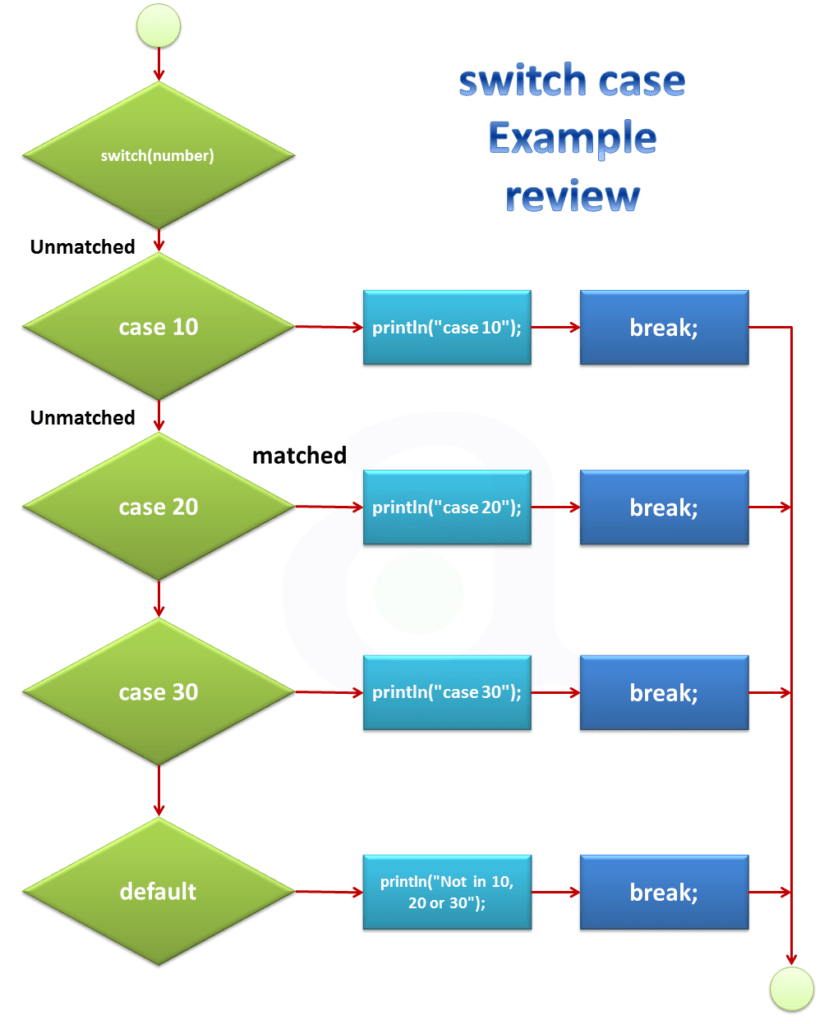Table of Contents

Definition
In programming, a switch statement is used to check if a variable matches one of several values, also known as cases. The variable being tested is compared to each case to determine which block of code to execute. In simpler terms, a switch statement is like a menu with multiple options, where the expression being evaluated is the menu item, and each case is one of the menu options.
In C programming, the switch statement is a powerful tool that allows developers to execute different blocks of code based on the value of an expression. This control flow statement works by evaluating the expression and matching it to one of several cases, each containing a specific block of code to be executed if the expression matches.
To better understand this concept, imagine a switch statement as a menu with multiple options, and the expression being evaluated as the item you choose from the menu. Each case is like one of the menu options, and depending on the item you choose, a different block of code will be executed – just like how different food is served based on the menu option you select.
While switch statements are similar to if-else statements, they are often more concise and easier to read. This is because the switch statement allows you to test a single expression against multiple cases, reducing the amount of code you need to write. As a result, switch statements are a powerful tool for developers who want to write clean, efficient, and easy-to-understand code.
Syntax Of Switch Statement
switch(expression) {
case constant-expression:
/* code to be executed if the expression matches the constant-expression */
break; /* optional */
case constant-expression:
/* code to be executed if the expression matches the constant-expression */
break; /* optional */
/* you can have any number of case statements */
default: /* optional */
/* code to be executed if none of the cases match the expression */
}
Note that the break statement is used after each case to prevent the execution of subsequent cases. Also, if the default case is executed, it means that the value of day is not within the range of 1 to 7, which represents the days of the week.
Example of Switch Statement in C Programming
#include <stdio.h>
int main() {
int day = 3; // represents Wednesday
switch (day) {
case 1:
printf("Monday");
break;
case 2:
printf("Tuesday");
break;
case 3:
printf("Wednesday");
break;
case 4:
printf("Thursday");
break;
case 5:
printf("Friday");
break;
case 6:
printf("Saturday");
break;
case 7:
printf("Sunday");
break;
default:
printf("Invalid day");
}
return 0;
}
My Blogging Website
Recent Posts
 How to Get Started with Deepseek: A Step-by-Step Guide for Beginners
How to Get Started with Deepseek: A Step-by-Step Guide for Beginners- 1The Future of Deepseek: Trends and Predictions for 2024 and Beyond
- 2Top 10 Use Cases of Deepseek for Businesses and Individuals
- 3Deepseek vs. Competitors: Why It Stands Out in the Market in 2025
- 4How Deepseek is Revolutionizing [Industry/Field]: Key Insights in 2025
- 5What is Deepseek? A Comprehensive Guide to Its Features and Benefits 2025







